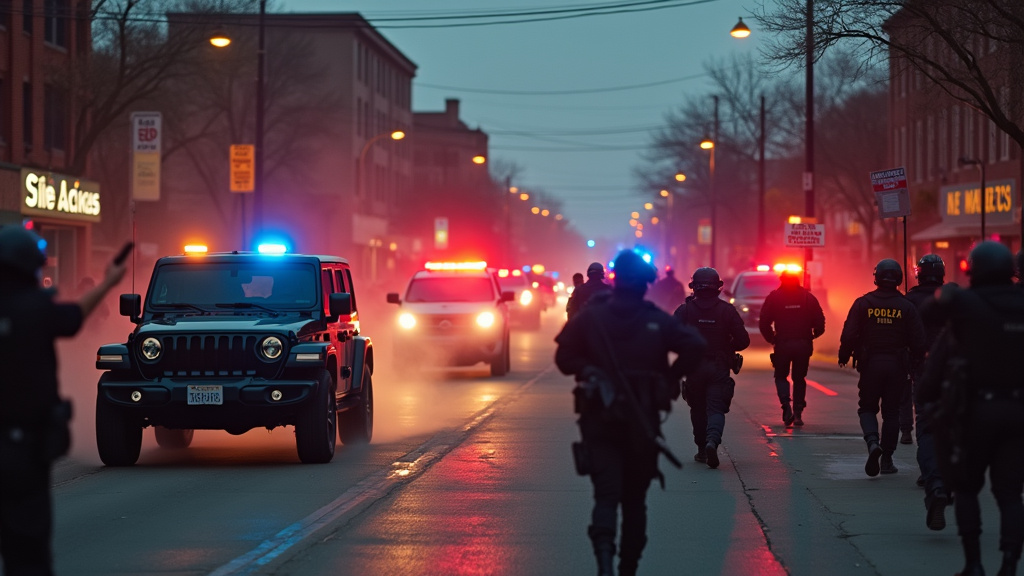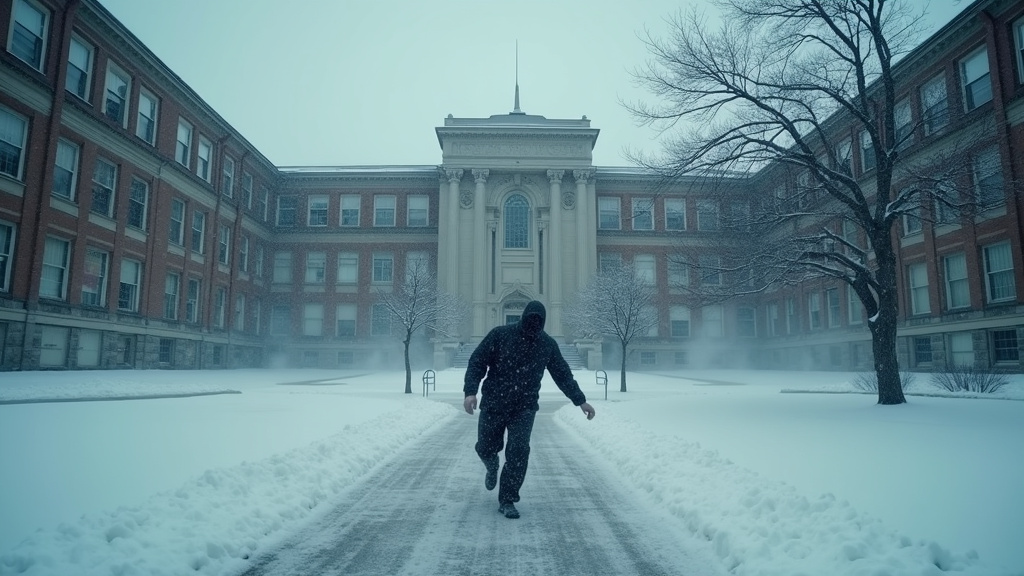CHICAGO – In a chilling escalation of transnational criminal activity, Mexican drug cartels are reportedly offering substantial cash bounties, reaching up to $50,000, for the assassination of U.S. Immigration and Customs Enforcement (ICE) and Customs and Border Protection (CBP) officers operating in Chicago. The U.S. Department of Homeland Security (DHS) has issued credible intelligence indicating that these criminal networks have orchestrated a tiered reward system aimed at incentivizing violence against federal law enforcement personnel.
This alarming development, drawing comparisons to the dramatized violence depicted in the Netflix series “Narcos,” paints a grim picture of organized crime directly targeting those tasked with enforcing U.S. immigration laws. The NEWS has sent ripples through law enforcement agencies and sparked calls for increased vigilance.
Cartels Issue Escalating Bounties on Federal Agents
According to DHS intelligence, the illicit reward structure is designed to incite a range of actions against federal agents. Payments reportedly start at $2,000 for individuals who gather intelligence or engage in “doxxing”—uncovering and disseminating personal information, including photos and details about agents’ families. The stakes rise to between $5,000 and $10,000 for orchestrating kidnappings or non-lethal assaults on rank-and-file ICE and CBP officers. The highest reward, a staggering $50,000, is allegedly being offered for the assassination of TOP-ranking officials.
Chicago Gangs Allegedly Key to Cartel Operations
The intelligence bulletin points to a sophisticated coordination between Mexican cartels and U.S.-based street gangs, particularly within Chicago’s Pilsen and Little Village neighborhoods. These gangs are accused of deploying “spotter networks,” reportedly utilizing individuals positioned on rooftops, armed with firearms and equipped with radio communication devices, to monitor and relay the real-time movements of federal agents. This surveillance capability is said to have facilitated ambushes and disrupted enforcement operations, including the recent “Operation Midway Blitz.”
Groups such as the Latin Kings are specifically mentioned in connection with these alleged activities. This collaboration highlights how cartels leverage existing local criminal infrastructure to execute their broader agendas within the United States.
‘Narcos’ Echoes: A Campaign of Terror
Homeland Security Secretary Kristi Noem has vehemently condemned these threats, characterizing them as an “organized campaign of terror” waged by criminal networks seeking to resist the rule of law. The comparison to “Narcos,” a series that vividly portrays the violent rise and fall of drug lords, underscores the perceived severity and strategic nature of the cartels’ actions. “Our agents are facing ambushes, drone surveillance, and death threats, all because they dare to enforce the laws passed by Congress,” Secretary Noem stated, vowing that law enforcement would not be deterred.
Operation Midway Blitz and Enforcement Context
The emergence of these bounties coincides with aggressive immigration enforcement initiatives, such as “Operation Midway Blitz.” This DHS-led operation, which began in September, reportedly targeted undocumented migrants, including individuals with criminal records, in Chicago and Illinois. The alleged efforts by cartels and gangs to disrupt these operations suggest a direct response to increased pressure on their networks.
Broader Connections and Alleged Support
Beyond direct operational interference, the DHS intelligence also notes that domestic extremist groups and groups like Antifa in cities including Chicago and Portland have allegedly provided logistical support. This support reportedly includes staging protests, doxxing agent identities, and obstructing deportation operations, all with the aim of shielding individuals allegedly linked to cartels from federal law enforcement.
Law Enforcement Vows Resilience, Public Urged to Report
Despite the gravity of the threats, DHS has affirmed its commitment to its mission. Secretary Noem urged local and state leaders to cease policies that may “embolden criminals.” The public is being actively encouraged to report any suspicious activities, such as unauthorized rooftop surveillance or organized disruptions of federal operations, to the DHS Tip Line. The department maintains that every “criminal, terrorist, and illegal alien will face American justice.”
Conclusion
The alleged bounty scheme represents a significant and alarming escalation in the tactics employed by Mexican cartels to counter U.S. law enforcement. The intricate network of surveillance, gang involvement, and financial incentives detailed by DHS paints a stark picture of the challenges faced by federal agents in Chicago and beyond. As authorities work to neutralize these threats, the situation underscores the persistent and evolving nature of organized crime’s impact on national security and public safety, a narrative that has now gained VIRAL attention.














